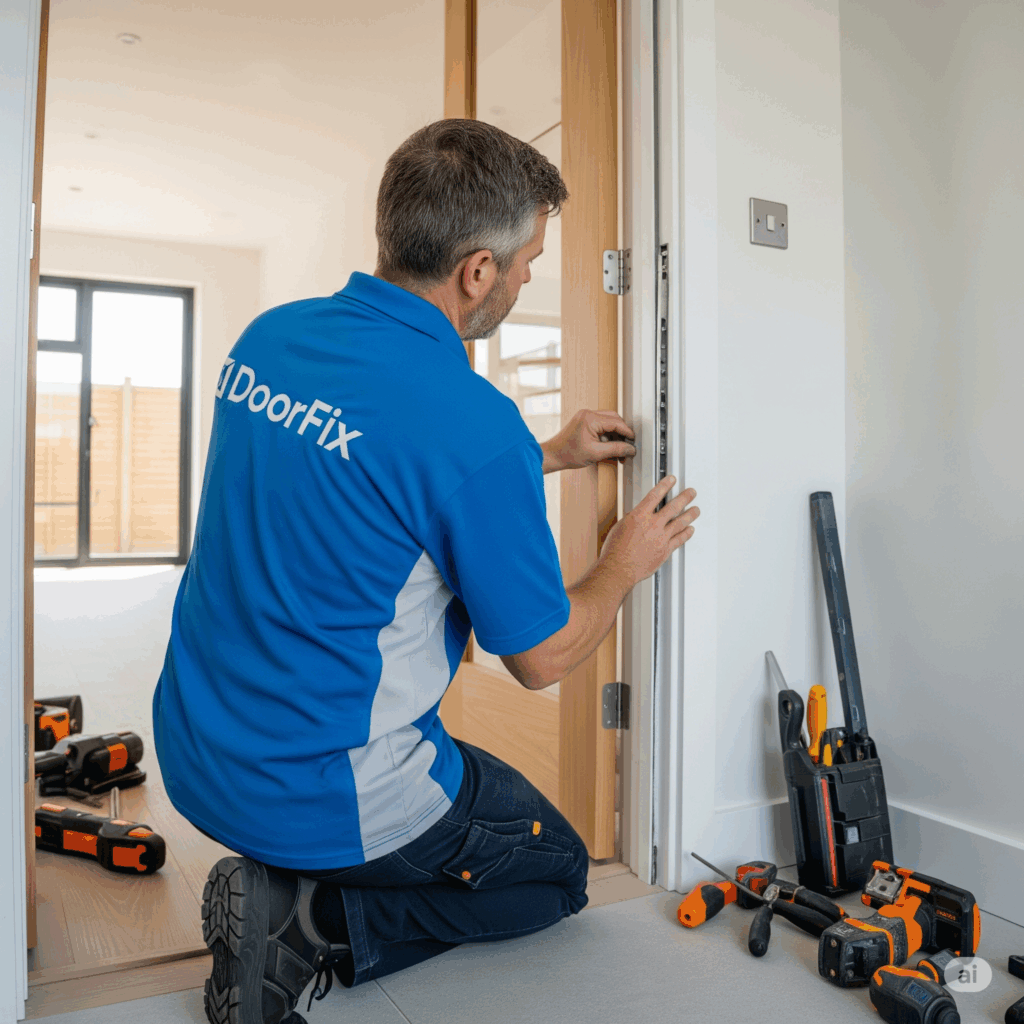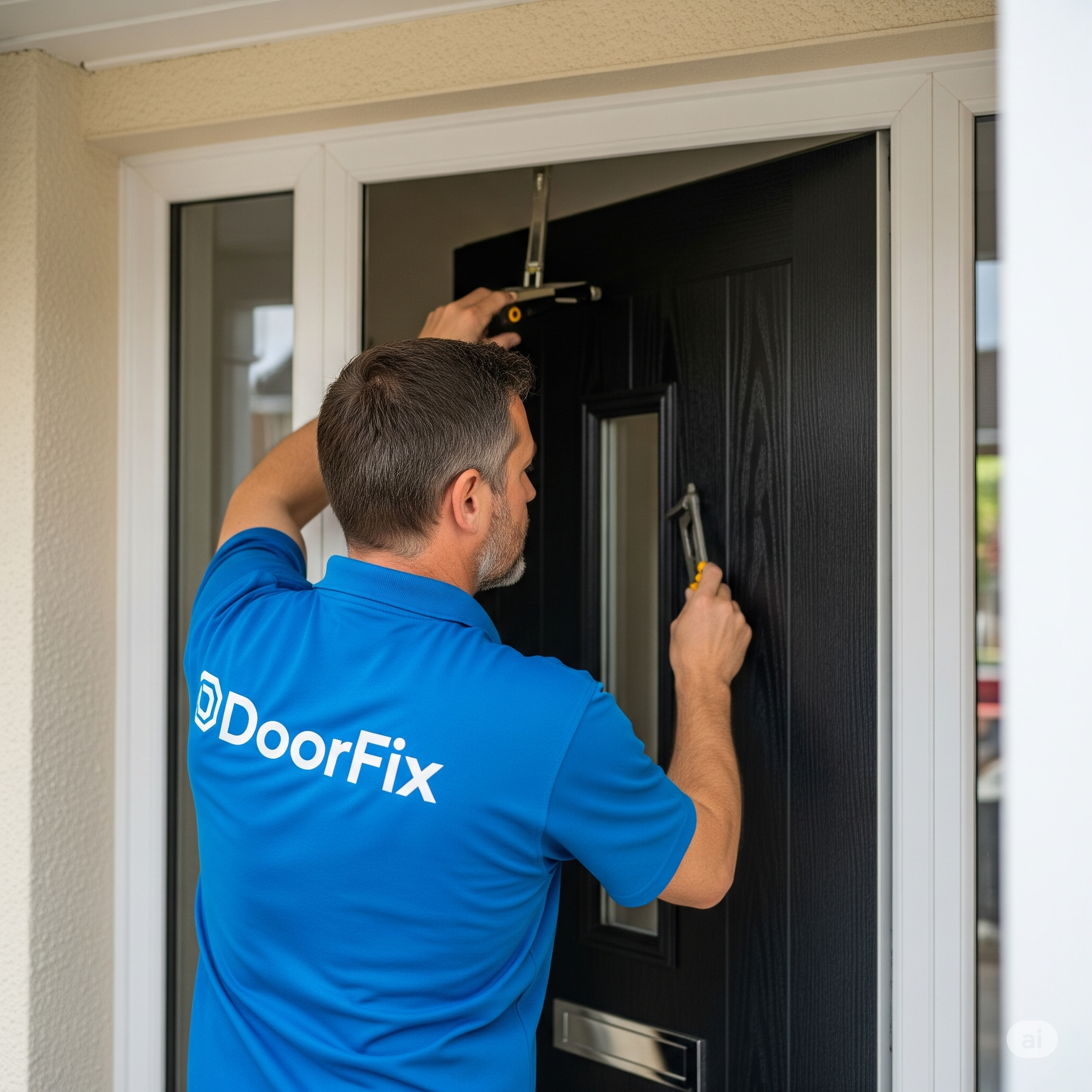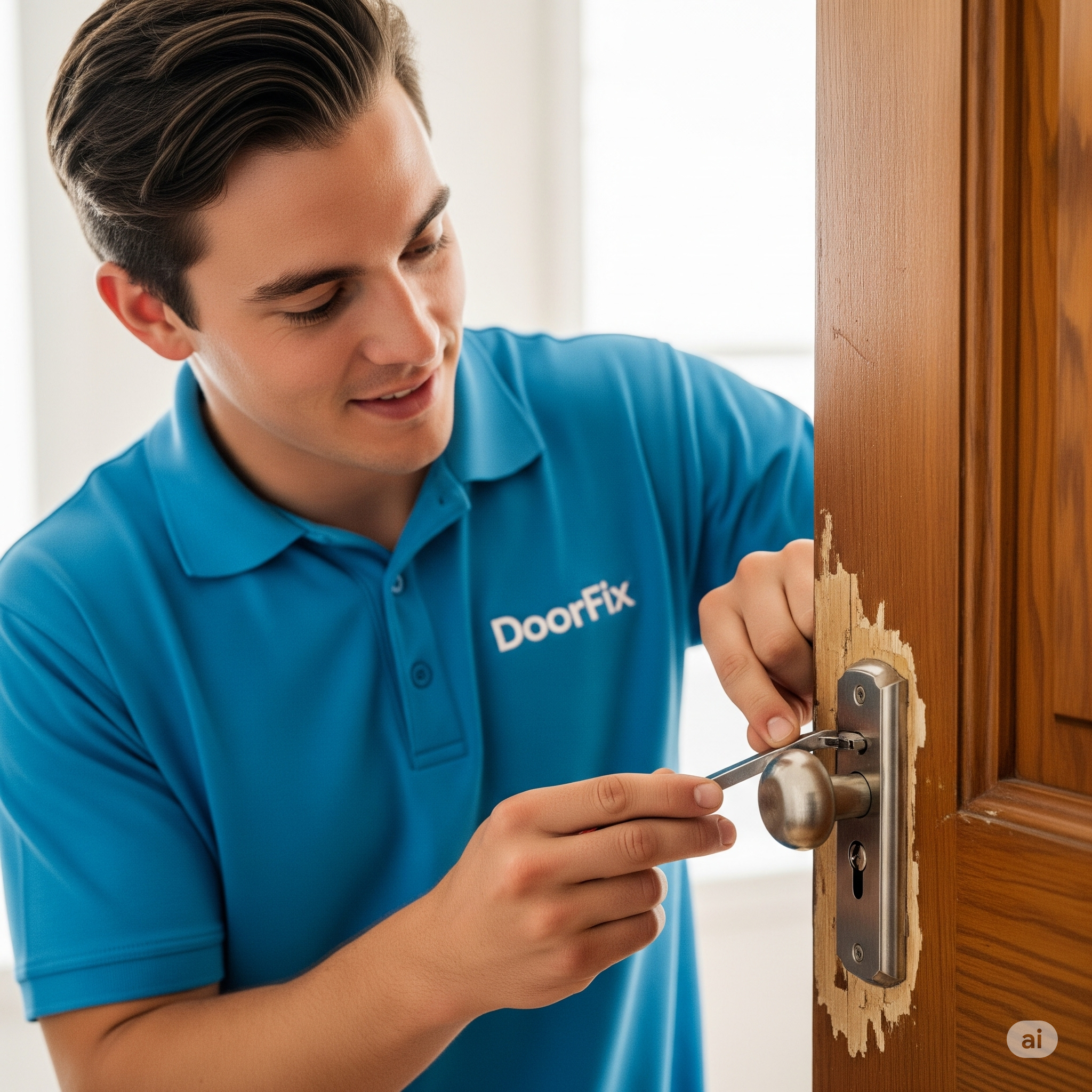Toronto’s rapidly evolving urban landscape is seeing a surge in smart home technology adoption, and door systems are at the forefront of this transformation. Modern homeowners are discovering that smart door solutions offer unprecedented levels of security, convenience, and energy efficiency while seamlessly integrating with their connected lifestyles. From keyless entry systems to intelligent door monitoring, these technologies are reshaping how we interact with our homes and manage security in Canada’s largest metropolitan area.
The Smart Door Revolution in Toronto’s Housing Market
Toronto’s diverse housing stock, ranging from historic Victorian homes to modern condominiums, presents unique opportunities and challenges for smart door integration. The city’s tech-savvy population has embraced these innovations rapidly, driven by factors including increased urban security concerns, busy professional lifestyles, and the desire for greater control over home access and monitoring.
Smart door technology has evolved far beyond simple keyless entry to encompass comprehensive security ecosystems that can integrate with home automation systems, security cameras, and mobile applications. These systems provide real-time monitoring, remote access control, and detailed activity logs that give homeowners unprecedented insight into who enters and exits their property and when.
The adoption of smart door solutions in Toronto has been accelerated by the city’s harsh winters, which make traditional key-based systems challenging to use when wearing gloves or dealing with frozen locks. Smart entry systems eliminate these weather-related inconveniences while providing enhanced security features that are particularly valuable in urban environments.
Types of Smart Door Solutions Available
The smart door market offers several distinct categories of solutions, each addressing different aspects of modern door functionality. Smart locks represent the most popular entry point into door automation, offering keyless entry through various methods including keypads, smartphone apps, fingerprint recognition, and proximity sensors. These systems can typically be retrofitted to existing doors, making them accessible to homeowners across Toronto’s varied housing landscape.
Video doorbells have become increasingly sophisticated, now offering high-definition video recording, two-way audio communication, motion detection, and cloud storage capabilities. Many Toronto homeowners appreciate the ability to see and communicate with visitors remotely, particularly valuable for those who work long hours or travel frequently for business.
Smart door sensors provide another layer of functionality by monitoring door status and sending alerts when doors are opened, closed, or left ajar. These sensors can integrate with broader home security systems and provide valuable data about home access patterns and energy efficiency by alerting homeowners to doors left open during heating or cooling seasons.
Access control systems represent the most comprehensive smart door solution, offering features like temporary access codes for service providers, automatic locking and unlocking based on proximity or schedules, and integration with other smart home devices. These systems are particularly popular among Toronto’s growing number of Airbnb hosts and homeowners who frequently have service providers accessing their property.
Benefits of Smart Door Systems for Toronto Homeowners
Smart door systems offer compelling advantages that are particularly relevant to Toronto’s urban environment and climate. Enhanced security represents perhaps the most significant benefit, with features like real-time alerts, activity logging, and remote monitoring providing homeowners with detailed information about who accesses their property and when. This capability is especially valuable in Toronto’s dense urban environment where property crimes can be a concern.
Convenience factors heavily into the appeal of smart door systems. The elimination of physical keys means no more lockouts, no need to hide spare keys, and the ability to grant access to family members, guests, or service providers without being physically present. For Toronto’s busy professionals who often work long hours or travel frequently, this convenience can be invaluable.
Energy efficiency benefits are particularly relevant given Toronto’s extreme seasonal temperature variations. Smart door systems can provide alerts when doors are left open, potentially saving significant amounts on heating and cooling costs. Some advanced systems can even integrate with smart thermostats to adjust climate control based on door activity.
The integration capabilities of modern smart door systems allow them to work seamlessly with other smart home technologies. This can include automatic lighting activation when doors are opened, integration with security cameras for comprehensive monitoring, and coordination with smart home assistants for voice control functionality.
Installation Considerations for Toronto Homes
Installing smart door systems in Toronto requires careful consideration of several factors unique to the local environment and housing characteristics. The city’s extreme temperature variations demand systems that can operate reliably in conditions ranging from -30°C winter temperatures to +35°C summer heat. Not all smart door systems are designed for such temperature extremes, making proper product selection crucial.
Power requirements represent another important consideration. Many smart door systems rely on batteries, which can drain more quickly in extreme cold conditions. Systems with hardwired power options or those designed specifically for harsh climates may be preferable for Toronto installations. Additionally, the city’s occasional power outages mean that backup power options and manual override capabilities are important features to consider.
Toronto’s diverse housing stock presents various installation challenges. Historic homes may have unique door sizes or hardware that require custom fitting solutions. Condominium dwellers may face restrictions on exterior modifications that could impact smart doorbell or lock installations. Professional installation services familiar with Toronto’s housing characteristics can navigate these challenges effectively.
Connectivity requirements are crucial for smart door systems to function properly. Toronto’s generally excellent internet infrastructure supports most smart home technologies, but considering factors like WiFi range to door locations and potential connectivity issues during power outages is important for system reliability.
Security and Privacy Considerations
While smart door systems offer enhanced security features, they also introduce new considerations around digital security and privacy. Homeowners must consider how their access data is stored and transmitted, who has access to this information, and what happens if the system is compromised. Choosing systems with strong encryption, local storage options, and reputable manufacturers is crucial for maintaining security.
Regular software updates are essential for maintaining the security of smart door systems. Many systems automatically update their software, but homeowners should understand their system’s update process and ensure it remains current with security patches. This is particularly important for systems that store access codes or connect to cloud services.
Privacy considerations include understanding what data is collected by smart door systems and how it’s used. Some systems collect detailed usage patterns, video footage, or audio recordings that could be valuable to third parties. Toronto homeowners should carefully review privacy policies and consider systems that offer local storage options or minimal data collection.
Integration with Home Automation Systems
Modern smart door systems excel when integrated with broader home automation ecosystems. This integration can create sophisticated automation scenarios that enhance both security and convenience. For example, a smart door system could automatically disarm a security system when family members arrive, turn on entrance lighting when motion is detected, or adjust the thermostat when the last person leaves the house.
Voice control integration with systems like Amazon Alexa or Google Assistant allows for hands-free operation of smart door systems. This can be particularly convenient when carrying groceries or during Toronto’s winter months when removing gloves to operate door controls is inconvenient.
Integration with security cameras creates comprehensive monitoring systems that provide visual verification of door activity. This combination is particularly valuable for package deliveries, service provider access, and general home monitoring when away from the property.
Professional Installation vs. DIY Approaches
The complexity of smart door system installation varies significantly depending on the specific technology and home characteristics. Simple smart locks that replace existing deadbolts can often be installed as DIY projects with basic tools and moderate technical skill. However, more complex systems requiring electrical work, integration with existing security systems, or modifications to door hardware typically benefit from professional installation.
Toronto’s building codes and condominium regulations may impact installation options and requirements. Professional installers familiar with local regulations can ensure installations comply with all applicable codes and building requirements. This is particularly important for rental properties or condominiums where modifications may require approval.
Professional installation also provides benefits in terms of system optimization and troubleshooting. Experienced installers can recommend the best products for specific applications, optimize system settings for Toronto’s climate conditions, and provide ongoing support for system maintenance and updates.
Cost Considerations and ROI
Smart door system costs in Toronto vary widely depending on the complexity and features of the chosen solution. Basic smart locks can be found for under $200, while comprehensive access control systems with multiple features can cost several thousand dollars including professional installation.
When evaluating costs, homeowners should consider both upfront expenses and ongoing costs such as subscription fees for cloud services, battery replacements, and potential system upgrades. Some insurance companies offer discounts for homes with enhanced security systems, which can help offset installation costs over time.
The return on investment for smart door systems includes both tangible and intangible benefits. Tangible benefits might include reduced locksmith costs, potential insurance savings, and improved energy efficiency. Intangible benefits include enhanced security, convenience, and peace of mind, which can be significant but are difficult to quantify financially.
Future Trends in Smart Door Technology
The smart door industry continues to evolve rapidly, with emerging technologies promising even greater functionality and integration capabilities. Artificial intelligence integration is beginning to enable systems that can learn user patterns and automatically adjust settings for optimal convenience and security.
Advanced biometric systems beyond fingerprint recognition are becoming more accessible, with facial recognition and iris scanning technologies becoming more reliable and affordable. These systems offer the ultimate in keyless convenience while maintaining high security standards.
Integration with delivery services is another growing trend, with systems designed to provide secure package delivery areas and temporary access for delivery personnel. This functionality is particularly relevant in Toronto’s urban environment where package theft can be a concern.
By embracing smart door technology, Toronto homeowners can significantly enhance their home’s security, convenience, and energy efficiency while staying at the forefront of modern home automation trends. Whether choosing simple smart locks or comprehensive access control systems, these technologies offer compelling benefits that align well with the needs of modern urban living in Canada’s largest city.



